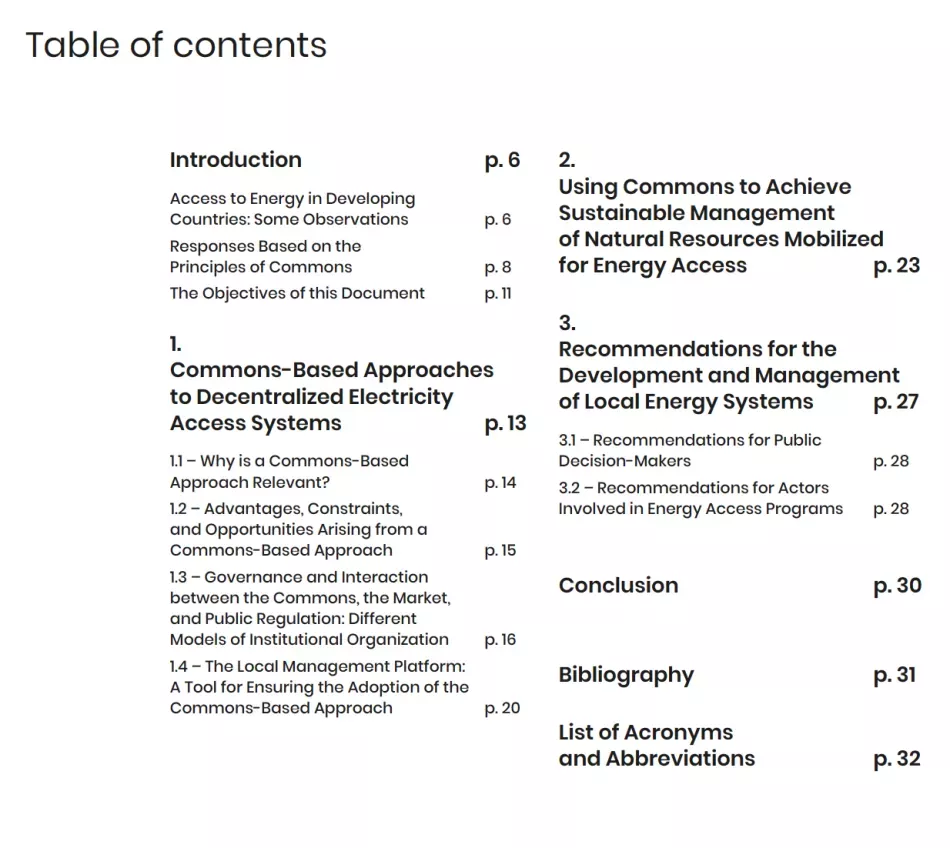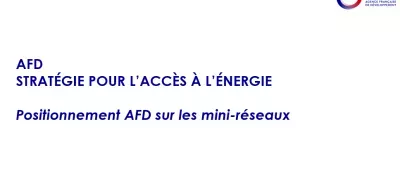
When it comes to energy access projects (electrification and thermal energy), approaches introducing a commons perspective can be distinguished by the fact that users play an active role. This role is constructed “from the bottom,” basing the legitimacy of operational rules on the proximity of social relations.These approaches may serve to address the recurring problems relating to mini-grid maintenance and to fraud and non-payment, as well as those associated with the sustainable development of natural resources. They also offer responses to specific challenges, such as long-term support for the local community, the structuring of an ad hoc governance model, and recognition by national authorities of the community capacity to organize itself. Thus considered, a commons dimension can be introduced to energy access projects or to those involving the management of vulnerable primary energy sources, such as water or biomass, in various institutional and contractual formats: rather than running counter to public action and the market ,it complements them.
Three billion people worldwide, primarily in sub-Saharan Africa and South Asia, lack access to electricity or still rely on traditional biomass-based cooking methods. To address this issue, various actors, whether public, private, or from civil society, are developing innovative energy access solutions, such as network extensions and decentralized systems, by implementing principles of collective management and resource sharing.
Adopting an approach based on commons in these initiatives involves actively involving users in decision-making and governance of local energy systems, while allowing for adaptation to evolving needs and user skills. This approach aims to address challenges related to community ownership of projects, maintenance of installations, reduction of fraud and non-payment, as well as prevention and management of conflicts.
To ensure the success of commons-based energy access projects, it is essential to establish an effective balance between collective management, public regulation, and commercial interests. Different models are emerging, ranging from local management committees supervising local artisans to decentralized service companies, all aiming to ensure sustainable energy access while addressing the specific needs of local communities.



